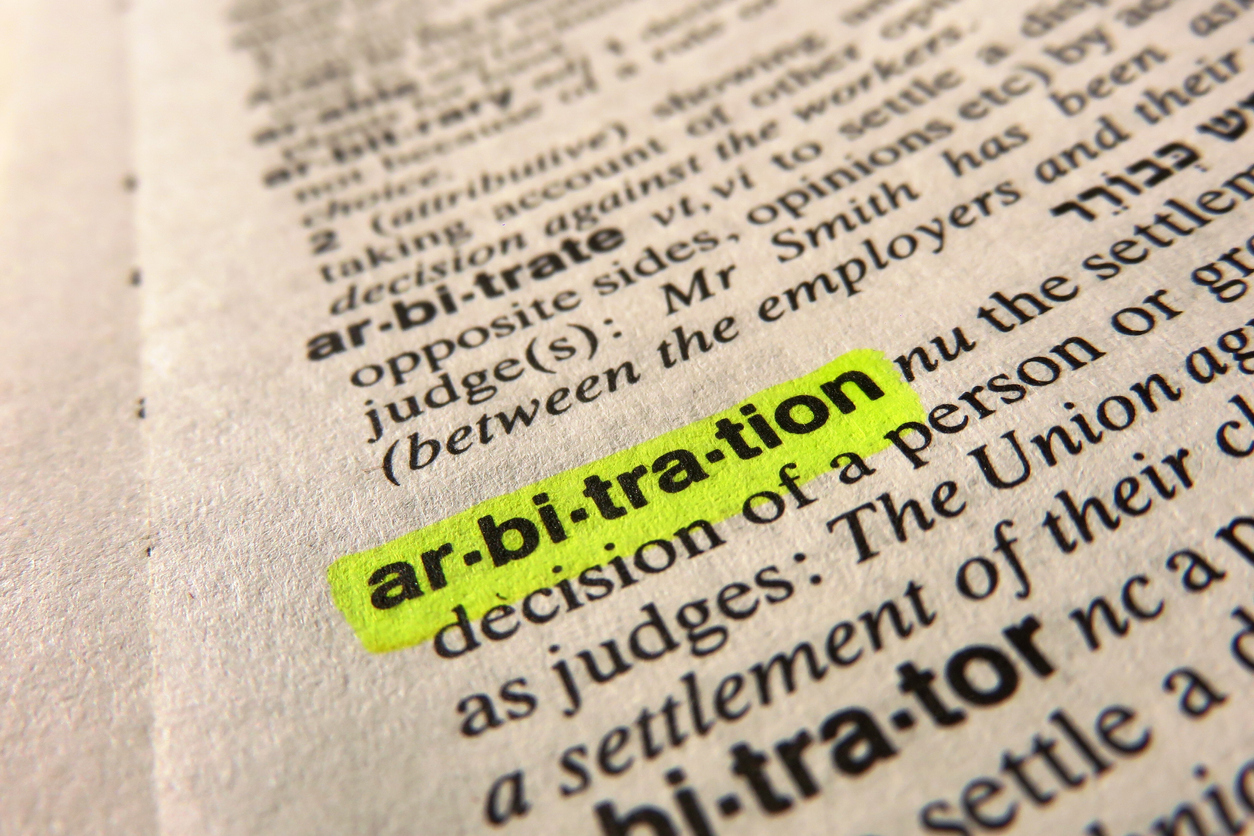The reaction and calls from those involved with appraisal to the post, Is Appraisal Governed Under the Federal Arbitration Act? have generated a great deal of concern. The emotion was near panic from those who make a living as appraisers asking how to get approved as an arbitrator. Others simply asked what does this practically mean—will the process change
A fairly recent Hurricane Michael appraisal case decided last year suggests that the appraisal process will likely continue as is, although controlled by the Federal Arbitration Act. In Register v. Certain Underwriters at Lloyd’s,1 the federal court noted that the issue of whether appraisal is governed under the Federal Arbitration Act is in flux:
The circuit courts are split on the issue of whether federal or state law governs the determination as to whether an alternative dispute resolution procedure is ‘arbitration’ for purposes of the FAA. The Eleventh Circuit has not explicitly held one way or the other…
In a footnote, the court noted the split among the federal courts on this issue:
The First, Second, Sixth, and Tenth Circuits have held that federal law governs, see Bakoss v. Certain Underwriters at Lloyds of London, 707 F.3d 140, 144 (2d Cir. 2013); Evanston Ins. Co. v. Cogswell Props., LLC, 683 F.3d 684, 693 (6th Cir. 2012); Salt Lake Tribune Publ’g Co. v. Mgmt. Planning, Inc., 390 F.3d 684, 689 (10th Cir. 2004); Fit Tech, Inc. v. Bally Total Fitness Holding Corp., 374 F.3d 1, 6 (1st Cir. 2004) whereas the Fifth and Ninth Circuits have held that state law governs, see Portland Gen. Elec. Co. v. U.S. Bank Tr. Nat’l Ass’n, 218 F.3d 1085, 1086 (9th Cir. 2000) (citing Wasyl, Inc. v. First Boston Corp., 813 F.2d 1579 (9th Cir. 1987)); Hartford Lloyd’s Ins. Co. v. Teachworth, 898 F.2d 1058, 1062 (5th Cir. 1990).
The court then analyzed Florida appraisals and found that the Federal Arbitration Act governs. Indeed, it noted that the Florida Supreme Court previously ruled that appraisal is not arbitration but disagreed that a state court could make a controlling conclusion over federal law:
The Court has not overlooked Devon Neighborhood Association …. in which the Florida Supreme Court unequivocally stated that ‘an appraisal provision in an insurance contract is not an agreement to submit to formal arbitration proceedings under the Florida Arbitration Code.’…However, that case is not controlling here because the determination as to whether the appraisal provision in the insurance policy in this case is an ‘arbitration agreement’ subject to the Convention is governed by federal law, not state law.
So, if the Federal Arbitration Act applies, will the appraisal process change in Florida? If I am reading this case correctly, I do not think that the method the panel conducts itself will change because the court noted the following about the process without saying it changes just because the Federal Arbitration Act governs:
This process has many elements of classic arbitration in that it provides for an independent adjudicator (the umpire) who will render a final, binding determination as to the amount of loss if the party-appointed appraisers cannot agree. Although the appraisal provision does not dictate how the appraisers are to determine the amount of loss, the insurance policy contains standards for ‘loss settlement’ that will presumably guide the determination….Additionally, the appraisal award can be confirmed, modified, or vacated by a court upon proper motion….
The appraisal process does, however, lack some elements of classic arbitration. Most notably, there is no opportunity for the parties to present evidence or argument in support of their positions, either to the appraisers or the umpire. See Citizens Prop., 117 So. 3d at 1229 (‘There is no obligation for appraisers to give formal notice of their activities to the parties or counsel, or to hear evidence.’); Liberty Mut. Fire Ins. Co. v. Hernandez, 735 So. 2d 587, 589 (Fla. 3d DCA 1999) (noting that an appraisal does not contemplate ‘a trial-type hearing’)…Additionally, the appraisal will not necessarily produce an award that will resolve the case in its entirety because confirmation of the appraisal award does not foreclose the insurer from raising defenses to coverage…
Indeed, in another significant footnote, the federal court noted that under Florida law:
[A]ppraisers are expected to act on their own skill and knowledge relating to the matters being appraised.
I can hear a “whew!” from those who are currently making a living doing appraisals.
This case suggests that the appraisal process, as most know it in the property claims industry, will continue as it has but governed under federal law in those federal circuits that rule appraisal is governed under the Federal Arbitration Act.
Thought For The Day
They always say time changes things, but you actually have to change them yourself.
—Andy Warhol
____________________________________
1 Register v. Certain Underwriters at Lloyd’s, No. 5:2-cv52, 2020 WL 6106624 (N.D. Fla. Apr. 20, 2020).





